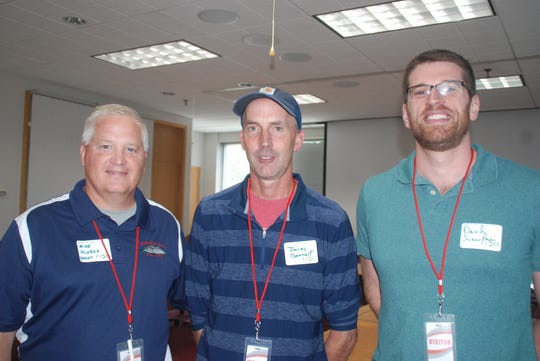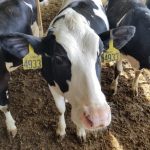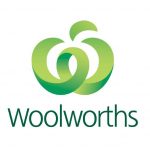
A Dairy Exchange meeting at the Department of Agriculture, Trade and Consumer Protection on July 23 brought together people from all parts of the dairy industry to hear about three of these innovators – one from a well-established cheese factory in Wisconsin, another from a relatively new farmstead dairy business and a second-generation innovator from a specialty dairy processor.
James Baerwolf, his brother and their wives began a farmstead dairy business in 2007 but they had been milking cows on their family farm since 1994 in Dane County. Today the families maintain a 250-cow organic dairy and a 600-cow dairy that is managed in a conventional system.
He said their goal is to “stay in business” and help promote the dairy business, especially taking advantage of the interaction they cultivate with the public. “People really like the connection with farming.”
Cold-brew coffee
Every Friday they offer farm tours and get around 300 people who are drawn to their farmstead. “People like animals. That’s something the plant-based products don’t have going for them,” Baerwolf said. “I like to have people know firsthand versus watching an internet video.”
Their business produces a number of products including ice cream and Baerwolf agreed with analysts at the Dairy Exchange that higher fat products are the ones that are selling. “Fat is popular. I can’t sell skim milk.”
Their Sassy Cow business is rolling out a “Moocha Milk Cold Brew” beverage that includes 1 percent milk from their dairy and a cold-brew coffee from Madison-based Cadence coffee. The beverage is low in sugar, he added.
“If you’re small or farmstead you really have to do quality. It’s quality all the way,” he added.
Baerwolf and his family are also planning to release a 4 percent milk that is lactose free and plan to start bottling milk for school lunch programs – another innovation for the business.
Just the Cheese, please
David Scharfman’s father Paul Scharfman started Specialty Cheese Company in 1991 and has been building the company since. The business was started to make and market ethnic cheeses that the elder Scharfman felt were missing in the marketplace.
They made cheeses targeted for consumers looking for Mexican products and one called “paneer” for the Indian market. “There was no way of knowing which would grow as Dad innovated around these different varieties,” David said. “But when Indian food exploded we ended up in huge markets like Costco.”
Today the company makes 35 different varieties of ethnic cheeses in a former high school building in Reeseville. Along the way, the company experimented with a product where the cheese also became the crackers – a baked type product where the cheese became crunchy and would serve as a snack food.
That version never really caught on, but after David worked overseas and then as a consultant, he ran across a product that reminded him of his Dad’s old cheese-as-crackers product and decided to take it a step further, removing any artificial ingredients and marketing it as a healthy snack. It was at that point he became part of the family business.
His “Just the Cheese” product was born and he decided to try marketing it over the internet since it is shelf-stable for nine months. Knowing how to present the product for sale on Amazon and in other internet-marketing sites allowed the product to score big with yoga Moms, fitness consumers and those looking for keto-diet snacks. It also pops up near the top of any internet search for diabetic-friendly snacks.
They have partnered with the Juvenile Diabetic Association to promote research.
“From my perspective it’s a nice, natural snack with one ingredient – cheese,” he said.
The first month they sold 20 boxes per day (with 12 two-bar packages per box) to 100 boxes in the second month. It has since escalated to 600 boxes per day. In January they were selling 750 boxes a day.
The growth of the healthy cheese snack product has necessitated the purchase of new equipment and expansion of the production lines in their cheese plant. Their distribution has also expanded to some major retailers like Wegmans, Maier, Costco and 7-11 convenience stores. They have been selling the product for less than two years.
No smell, no problem
Mike Hlubeck is general manager of Chalet Cheese Cooperative in Monroe, a business that started with local farmers in 1885. Though it has seen many improvements over the years, their cheese factory was built in 1948.
It is still the only Limburger cheese factory in the United States. Hlubeck said they also do very well with their Baby Swiss cheese and have won numerous awards with that product. They also produce brick cheese.
“The problem with Limburger is the smell and a lot of people don’t want to try it for that reason,” he said. “We decided to try and make it without the smell.”
What he and his team came up with is a cheese called “Le Bec.” Since Limburger cheese comes from Belgium and the common languages in that region are Flemish and French, they came up with a name for their cheese referencing the nose.
“We were looking for great flavors without the smell,” he said.
A small test vat used by a top cheesemaker at Chalet yielded various experimental cheeses. They experimented with several ways to remove the Limburger smell and eventually hit on a fairly simple way to get the job done. Hlubeck would only say “it was magic.”
The Le Bec label is finalized and was rolled out at the Dairy Exchange where the Chalet crew allowed people to taste traditional Limburger and compare it with the new counterpart, but Hlubeck said the product is not yet to market. It will hit markets in about a month.
He’s pretty sure it’s going places. “We think we’ve got a home run,” he said.
When they were brainstorming for a new product, he said, they looked for something where they could build on what they were good at and stay within their wheelhouse. “We thought if we changed something around maybe we might have a new product.”
Baerwolf and Scharfman agreed that when talking to buyers many will talk about GMO-free products or organic, but the huge volume of products available in the marketplace drowns out the differentiation. “Some of them are not even sure what they’re asking for,” said Baerwolf.
Scharfman said that when grocery store buyers ask for something like an organic product, often they want it to be at the same price and if customers see that it will cost a dollar more they say “never mind.”























